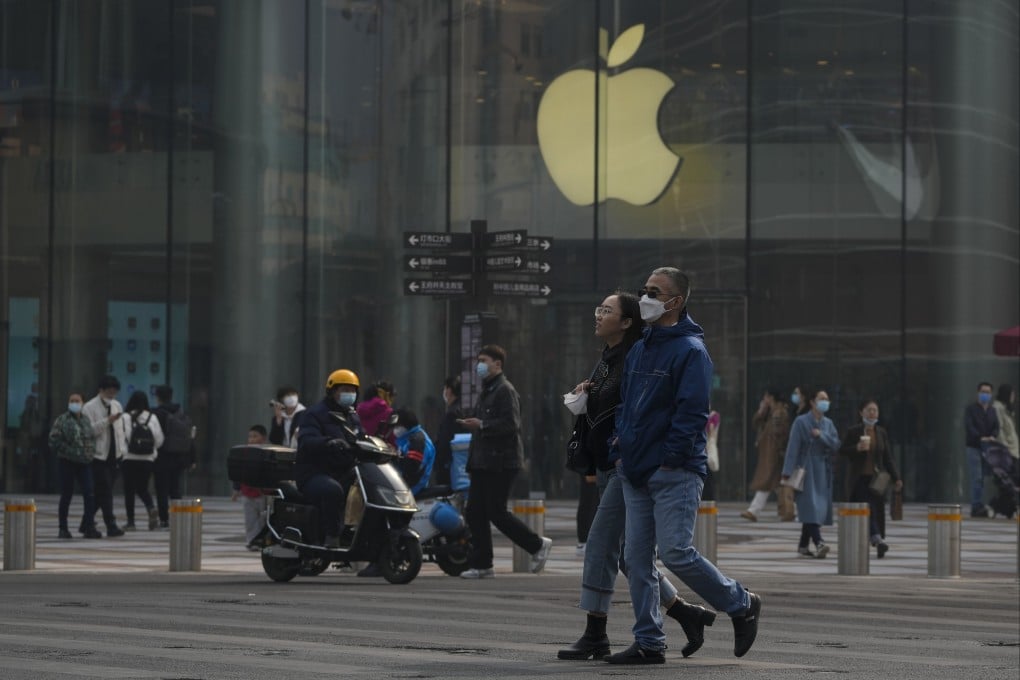Apple woos Chinese consumers on Tencent super app WeChat with new mini-program
- The newly launched Apple Store mini-app on WeChat offers a range of services in tandem with its official website-based online store
- While Apple is increasingly turning to Indian consumers for growth, China remains the company’s largest overseas market after the Americas and Europe

Apple is expanding its sales network in China by launching an official virtual storefront on WeChat, the country’s most popular messaging app, at a time when the US tech giant is slowly moving production elsewhere in Asia as part of its efforts to reduce reliance on Chinese factories.
The Californian company’s Apple Store mini-app on WeChat offers a range of services in tandem with its official website-based online store, according to a statement on Tuesday. The mini-app lets WeChat users browse and search by product categories, check out product details and related training courses, and place and track orders.
The new store, however, does not provide steep discounts or heavy subsidies. The main promotion gives a credit of up to 5,500 yuan (US$306) to users who want to trade in their old iPhone models for the latest iPhone 14 or iPhone 14 Pro.
Apple already has storefronts on the country’s major e-commerce platforms, including JD.com, Pinduoduo and Tmall, a marketplace run by Alibaba Group Holding, owner of the South China Morning Post.
The WeChat shop provides Apple with another channel to sell directly to the world’s largest consumer electronics market, which is expected to reach US$228.3 billion in 2023, compared with US$155 billion in the United States and US$69.15 billion in India, according to a report by Daxue Consulting.
Despite concerns that Apple’s supply chain may be over-concentrated in China, the country remains the company’s largest overseas market after the Americas and Europe.
